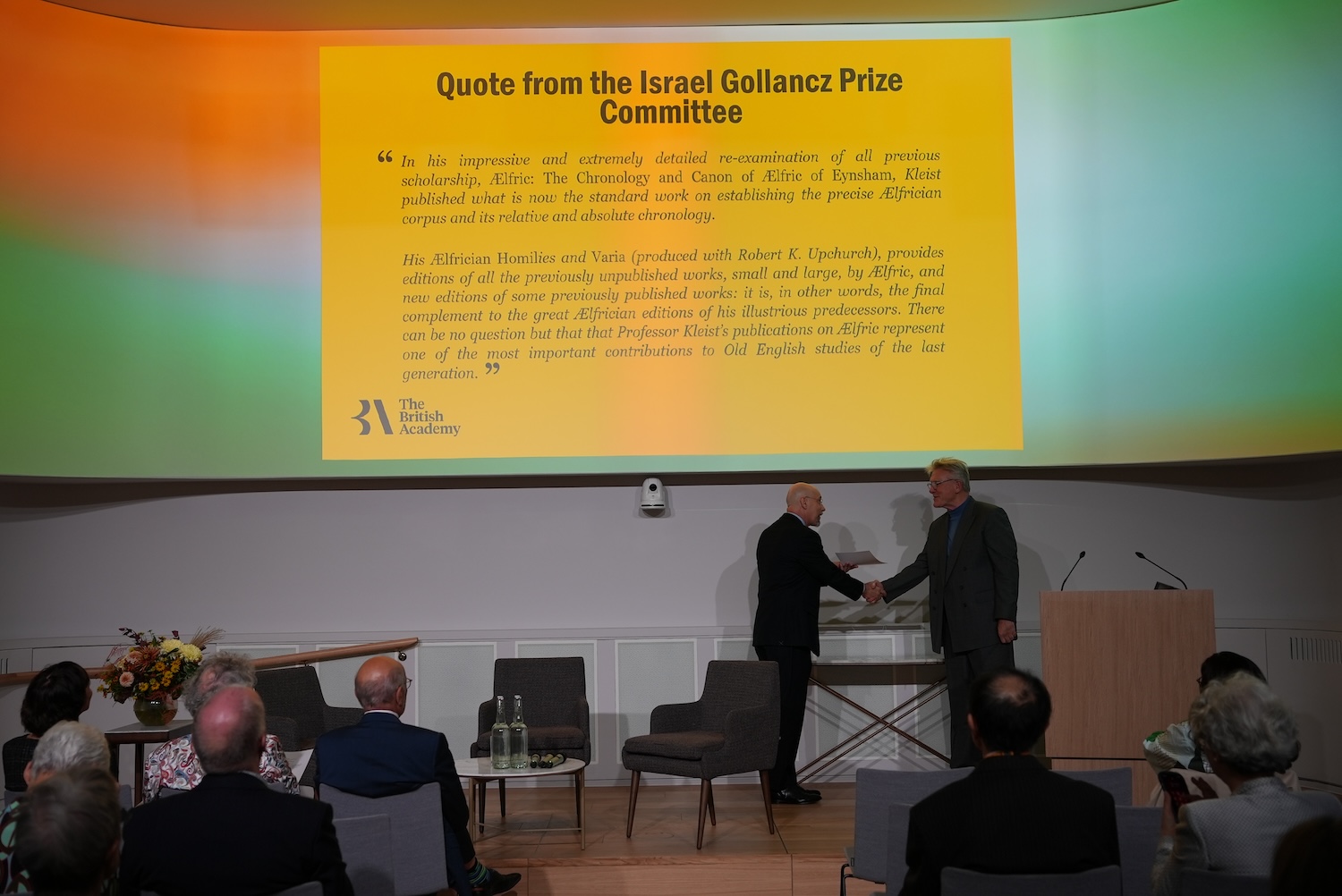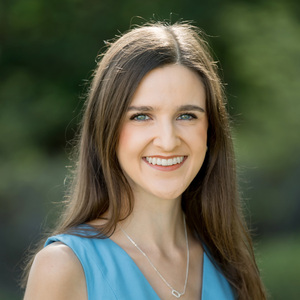Dr. Aaron Kleist, professor of English, has been awarded the prestigious 2024 Sir Israel Gollancz Prize. The British Academy gives the award annually to individuals for their work connected with Anglo-Saxon, early English language and literature, English philology or the history of English language. Notably, famous author and theologian C.S. Lewis ranks among its previous recipients.

“With this prize, the most highly esteemed academics in the British Academy have honored Dr. Aaron Kleist with their highest esteem,” said Dr. Melissa Johnson, associate provost for undergraduate education and dean of the School of Humanities and Social Sciences. “To call Aaron a world-class scholar is no exaggeration! We in the School of Humanities and Social Sciences are thrilled to see his exceptional scholarly excellence so well celebrated.”
Kleist was awarded the prize for the three publications he spent researching, editing and commentating on by ancient author Ælfrician of Eynsham.
“There can be no question but that Professor Kleist’s trilogy of publications on Ælfric from 2016, 2019, and 2022, crowned by the edition nominated, represent one of the most important contributions to Old English studies of the last generation. This is an extraordinary individual achievement, and one that deeply deserves the high recognition that the Sir Israel Gollancz Prize offers,” concluded the award committee.
Read more from Kleist on his multi-year experience of qualifying for this esteemed award.
What work earned you the award?
Three books, primarily, that were born out of 20 years' research: The Chronology and Canon of Ælfric of Eynsham (Cambridge, 2019), which set forth in excruciating (as any reader would tell you) detail the work of the most prolific, erudite and influential author writing in English before Chaucer; and the two-volume Ælfrician Homilies and Varia (Cambridge, 2022), which edited the last of Ælfric's unpublished writings and examined their relationship to over 100 classical, patristic and medieval sources, nearly 200 other Ælfrician works, and over 1,000 passages from the Bible. The latter volumes would never have been completed without my co-author Dr. Robert Upchurch of the University of North Texas, who urged me on and wrote all the interesting and insightful bits.
What makes this award unique?
It's not for STEM, though I've long worked on digital editions. It's not for AI, though I'm exploring how AI might identify medieval authors. It's not for bleeding-edge discoveries, though I hope I've helped my colleagues think about our field in different ways. Rather, this award is for unglamorous, ponderous, slug-slow studies of medieval sermons — and as such, is one of the vanishingly rare world-class affirmations that work in the humanities, on thousand-year-old texts, may yield enduring insights into what it means to be human.
How long have you been at Biola and what brought you here?
I’ve been at Biola since 2001. I'd finished my first doctorate at Cambridge and was teaching for the Department of Anglo-Saxon, Norse, and Celtic when — let me get this right — a friend of my father from Taylor University, my undergraduate alma mater, transferred to Point Loma in California and told a friend in the Biola English department that there was this fellow in England whom they should consider for their open medievalist position. Apart from teaching stints in Switzerland, Germany, England, St. Martin's, Belarus and Bulgaria, I've been here ever since. I love the mission of this place, and am genuinely privileged to live it out as long as I am here.
As an English major at Biola, students join a community of students and faculty dedicated to the pursuit of nuanced thought, careful reading and creative, persuasive writing. The English department engages in community, together, by practicing the power of language and story. Learn more about receiving a bachelor’s in English at Biola by visiting the website.
Interview conducted by Sarah Dougher, media relations specialist. For more information, or if you’d like to be included in a faculty highlight, email media.relations@biola.edu.
 Biola University
Biola University.jpg)

.jpg)
.jpg)